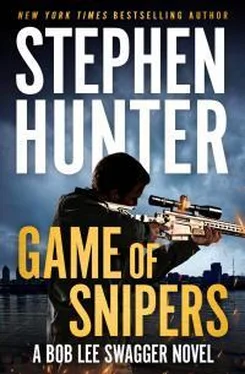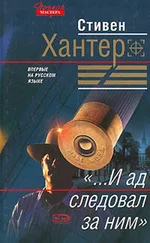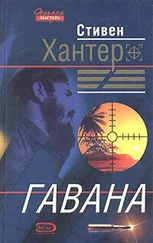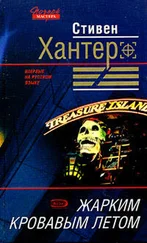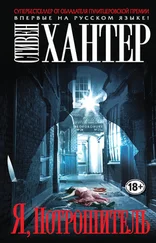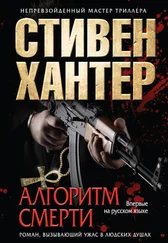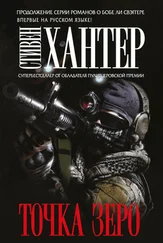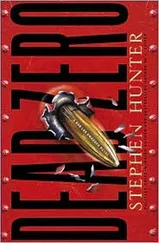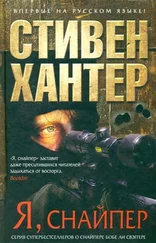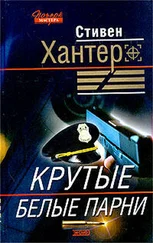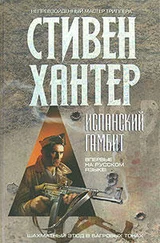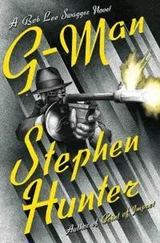“I do.”
“Can you live by those rules?”
“Yes.”
“We are professionals, not avengers. We expect the same from you.”
That seemed to do it. The session had lasted six hours, he realized. He was hungry. But the men at the table seemed to communicate by nod or even subtler stratagems, and after a pause for wordless communication, Gold went through the nature of the professional arrangements, involving contracts, payments, insurance, next-of-kin notification, and other bureaucratic necessities.
“Do you have any questions?”
“I am curious about one thing. What in the presentation convinced you this was worth following and not a scam or a dumb-ass initiative by amateurs?”
“On January fifteenth, 2014, an Israeli businessman, who was secretly our agent and very well known by many of the men in this room, was leaving Dubai. He was shot by a sniper on the tarmac as he waited to board the jet and killed. Very long, impressive shot. But mysterious too.”
“Why?”
“He thought — and we thought — his cover was secure. He had been in Dubai for two weeks, attending to issues. On several occasions, he was accessible, we realized, to shorter, easier, more certain shots. We were baffled by the fact that it was not until his last day that he was taken from us, and the shot was much harder. But the bill of lading that Mrs. McDowell located in the SouthStar files provides the answer. Juba was out of ammunition. He had fired his quarterly allotment, and he would not move without the Bulgarian in his magazine. It arrived the thirteenth. He immediately was dispatched to Dubai. With his preferred ammunition finally in stock, he made the shot, though much harder than it could have been. The bullet was recovered, and indeed it was the heavy ball, although we attached no importance to that at the time. But now we see that it explains the timing.”
“So again, the lady was right. She had a list of killings from around the world. Your people, ours, their own. Whoever. Juba is the one for the job.”
“Juba is promiscuous,” said Gold. “To our misfortune, he has had many encounters with us. And as you know, he’s very good at what he does.”
“You have IOUs to cash in as well.”
“You don’t know the half of it. Cohen, be unusually useful. Tell him about the bus.”
Israel, the bus
June 14, 2015
You must do this hard thing for us, Juba,” said the commander. “Bombs have lost their magic. Blow up two hundred and fifty people in the marketplace, and no one notices. It doesn’t even make the news in the West. We need something with an edge to it, something that will make the bastards sit up and listen. And realize they cannot forget us for even a single second.”
“I am in obedience, as always,” Juba said.
The commander had told him of the politics of the situation, not that he knew or cared about politics. The Americans were attempting to negotiate with the Iranians, and if they got a mullah’s name on a dotted line, it would be celebrated as a major event in the West. The idea would take hold that “progress” was being made, delusionary or not. But such arrangements made without the presence of the Islamic State at the table could not be allowed. It would suggest that such a way could lead to a “solution,” when the only real solution was the eradication of the Zionist entity and its citizens. That was the solution that Allah demanded, that and nothing else.
An atrocity was needed that would shock the world and generate such heat that no accord could be signed and an important object lesson would be taken. The leaders had considered many alternatives, but all were difficult to arrange, needed heavy logistic support, and were subject to discovery and penetration.
Juba was one man, with extraordinary skills. With minimal assistance, he could move into position, strike his blow, and vanish. No networks risked, no valuable supplies eaten up, no large bodies of men required. Such was the magic of Juba the Sniper.
“The thought of the death of one by another, that is what scares them to their core. The bomb is impersonal. It has no charisma. It is anonymous and seems almost like the weather. It’s like a tornado arriving. But the man with the rifle intimately acquaints himself with each victim. They are all narcissists, the idea of being not a victim of circumstance but of a conspiracy aimed directly at them — that is something that will linger in their minds.”
“I understand,” he said.
* * *
The trip in the hold of the ancient freighter was finished. So was the rumble through Gaza City traffic, the long trek hunched in the dampness of the tunnel, prone to discovery at any moment by Israeli security teams. But he had made it to the Promised Land.
In a nameless village in the Negev, not far from the Erez Crossing, he climbed aboard a decrepit vehicle and paid his shekel passage. It was crowded, but he found his way to the rear and got a seat. Nobody looked twice at him. And why should they? He was of them.
He wore a loose tribal turban over his head and loose shirts and a scarf, all of it of the random sort picked up by laborers the Middle East over. His loose pants had seen so many other days and owners, his boots were scuffed from their own record of days and owners. He was the nameless one, the Arab, sustained by faith but otherwise oblivious to reality. He was the millions. If he had or had had a wife and family, it was all forgotten in the ceaseless turmoil and labor. This side of the wire, that side, this wire, that wire, made no difference. He was eternally on the move, and the only pleasures he could seek were religious or illicit. He had no place to go, he had nothing to belong to. To such, Allah would be everything, for in Allah and the next life was the only hope.
The bus coursed the Negev, stopping now and then in other nameless villages that had sprung up along the road. The desert here was vast, but not as cruel as much of its other territory, which was scorched land, inhospitable and dark, with stone rills running crazily this way and that. It could kill you fast if you didn’t know what you were doing. Here, though, agriculture had taken hold. Still close enough to the sea, and the Jews had built their kibbutz, where they lived and sang and farmed and fucked, while, on the lesser land, Arabs farmed wheat or dates, mostly by the power of their own backs, and the sea temperature was mild enough so that those wheat and dates usually were ready for harvest on schedule. The Jews patrolled in their machine-gun-equipped jeeps, young men drawn from the city, serving for only a few years. They knew nothing, their eyes saw nothing. It was a game of wasted time for them, until they had done their service and could be about better business.
But Juba knew it well. He had lived twenty years in such degradation, one of many children of a village chief in another country, virtually uneducated, beaten like a dog for any infraction, untouched by love from mother and father, for each had too much to do to spend precious seconds on that. There was never enough food. And the television reception — every house, no matter how poor, had a television — showed fuzzy images of some other world that was unreachable, unimaginable.
His life was defined by the wheat. From the age of eight on, he toiled in the fields. It wasn’t any mechanical kind of farming but instead the ageless struggle of the Arab peasant, the harvest by hand, with flail and hoe, as the tough thistles on the stalks rubbed the fingers raw, and one had to bend to get to them, until the back knitted in pain, and the ground cut into the knees, while above the sun was merciless, and his father kept yelling, “Faster, faster, you lazy little insects. Do you want to die of hunger? This is survival!”
Читать дальше
